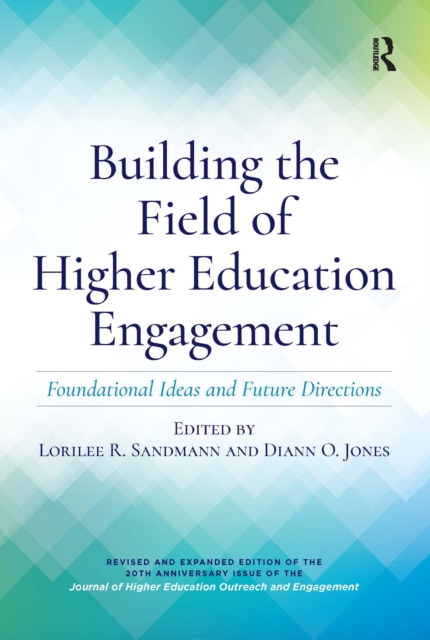
Building the Field of Higher Education Engagement : Foundational Ideas and Future Directions PDF
Edited by Lorilee R. Sandmann, Diann O. Jones
Description
Community engagement has evolved as a respected field and now occupies a seat at the academic table. In the past, this work had often been relegated to the institutional fringes of higher education, its practitioners marginalized, and the work often portrayed as service, not scholarly. Today, higher education community engagement is a dynamic and continually evolving field of scholarship and practice that carries ever-increasing academic respect. This book contributes to the ever-under-construction edifice by presenting a scaffolding of the scholarship that has been part of the building process, documenting and analyzing the past, speculating about the future, and framing a continuing conversation about and for the field.The three parts of this book are designed to promote a continuing field-building conversation: a look back at foundational documents of the field; a set of provocative questions interrogating those foundational works; and a look to the future by the next generation of leaders in the field. The central part is the special 20th anniversary issue of the Journal of Higher Education Outreach and Engagement, which brings together key documents of the scholarship of engagement with reflections on those documents by key scholars and/or the authors of the original works. In addition to highlighting the foundations and evolution of the field, this work also looks ahead to the next generation of voices and views as input to the conversation, with a closing chapter that includes invited essays by nine outstanding community-engaged thinkers and writers of the next 20 years who share their ideas about probable futures.
Information
-
Download - Immediately Available
- Format:PDF
- Pages:312 pages
- Publisher:Taylor & Francis
- Publication Date:03/07/2023
- Category:
- ISBN:9781000974768
Information
-
Download - Immediately Available
- Format:PDF
- Pages:312 pages
- Publisher:Taylor & Francis
- Publication Date:03/07/2023
- Category:
- ISBN:9781000974768






